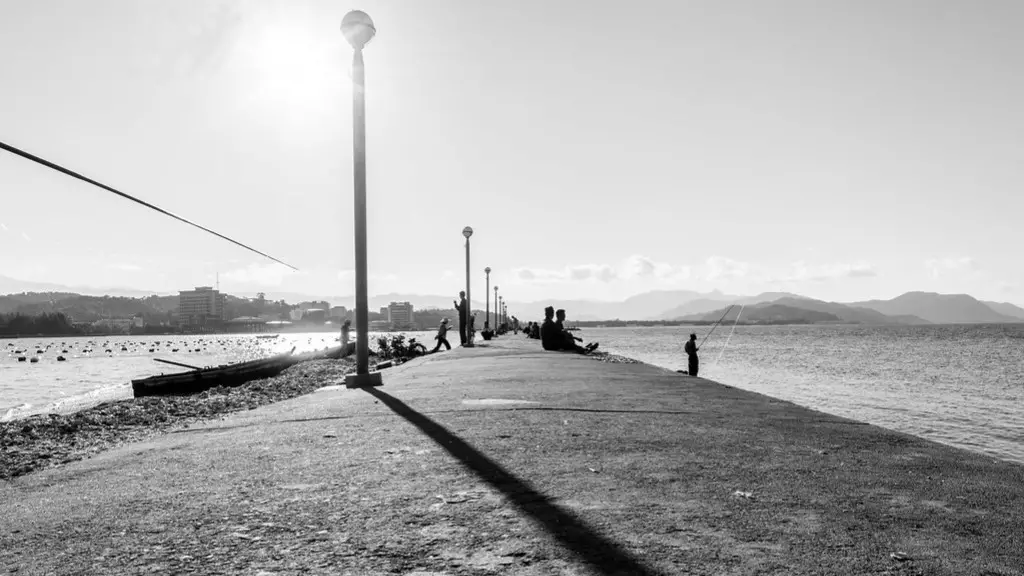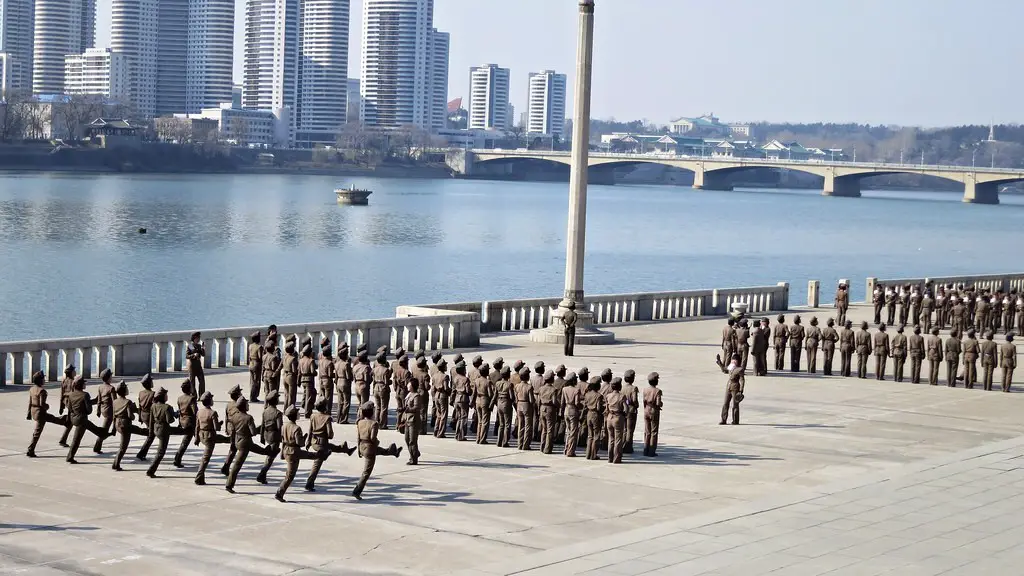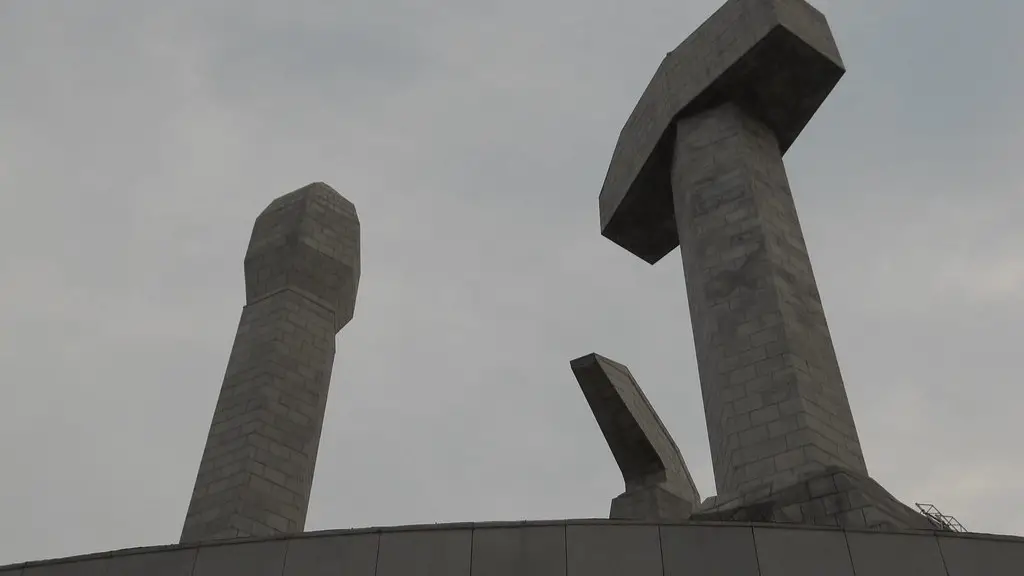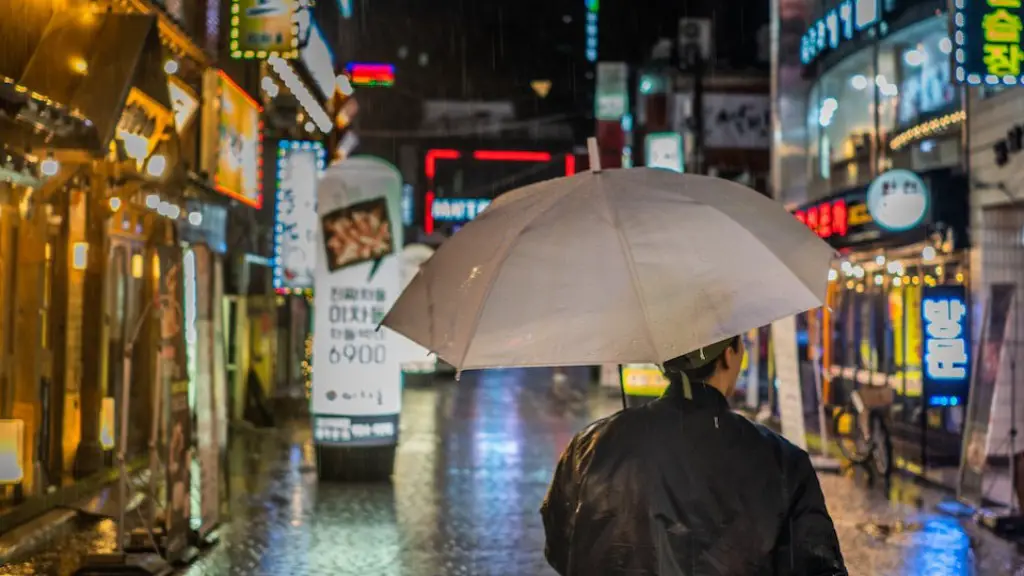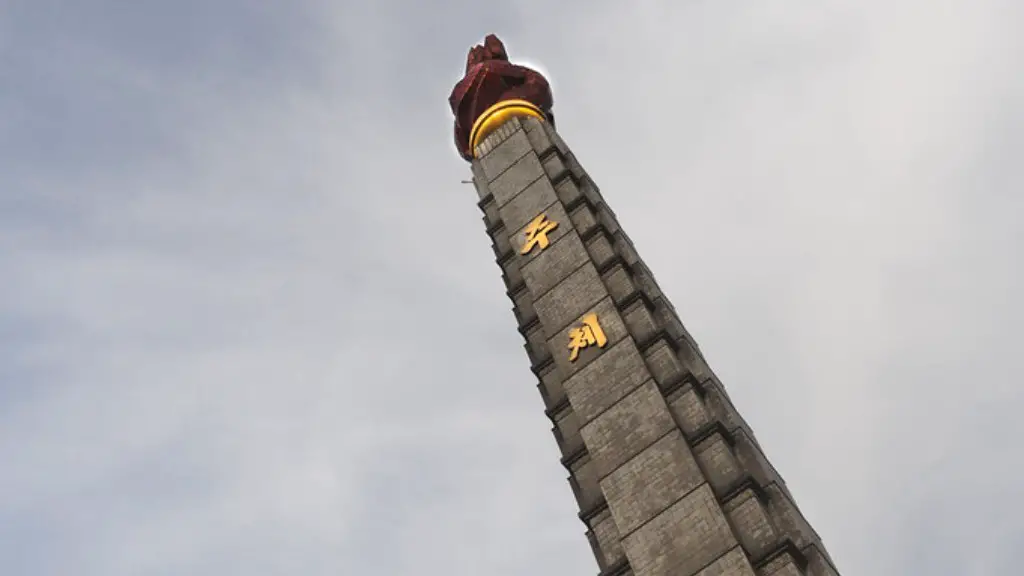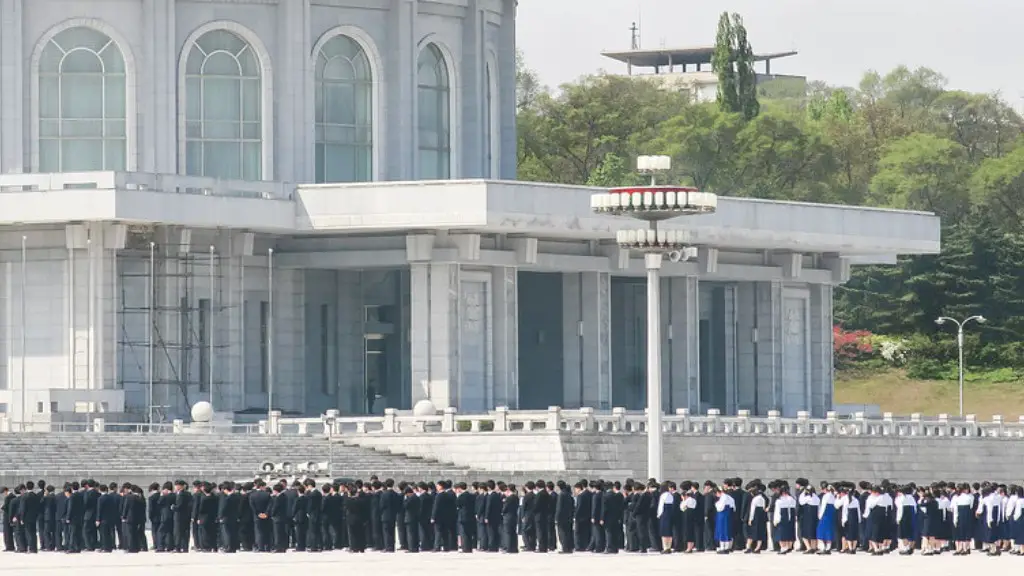The Democratic People’s Republic of North Korea is a controversial and mysterious nation that is known for its oppressive government and extensive human rights abuses. But who has the power in North Korea?
Under the rule of the Kim dynasty, North Korea is an authoritarian state where the ruling family controls every aspect of society. The Supreme Leader of North Korea, Kim Jong Un, is the most powerful person in the country, as he has ultimate authority over all matters of state. He controls the military and judiciary, appoints the senior members of the government, and sets the overall direction of the country.
Korean Workers Party is the ruling political party of North Korea and is the backbone of the state. The party is led by a Central Committee that is chaired by Kim Jong Un. The Central Committee formulates the party policies and oversees its implementation. Additionally, all senior government officials are members of the party and highly loyal to the Supreme Leader.
The North Korean military is also a major player in the country’s power structure. The Korean People’s Army (KPA) is subordinate to the North Korean government and the Supreme Leader. The KPA is responsible for protecting the country’s borders, maintaining order in the nation, and carrying out the Supreme Leader’s orders. The military has a powerful influence on North Korean society and its presence is visible throughout the country.
The economy is another critical factor in North Korea’s power structure. The state tightly controls the economy and directs the allocation of resources to ensure that the country’s goals are achieved. State-owned industries contribute significantly to the government’s income and help the country survive in spite of international sanctions.
North Korea’s power structure is further supported by the secret police and a wide network of informers who ensure that citizens comply with the government’s rules. The severity of the punishments and the prevalence of surveillance have led to a climate of fear in the country.
All in all, Kim Jong Un wields ultimate authority in North Korea as the Supreme Leader. Under his watch, the Korean Workers Party, the North Korean Military, the secret police and the economy are the driving forces behind maintaining Kim’s iron grip over the country.
Kim Jong Un’s Style of Governance
Kim Jong Un’s style of governance has been described as “first and foremost authoritarian”. Since taking power in 2011, he has taken steps to consolidate his power. He has been ruthless in his pursuit of power consolidation, cracking down on perceived enemies of the state, particularly those in the military. He has also greatly expanded the North Korean secret police and surveillance capabilities, creating a highly oppressive environment in North Korea.
Kim Jong Un has always been an advocate of strong central leadership and has sought to cultivate an atmosphere of loyalty to himself and the state. He has also pushed for a cult of personality, praising himself as the epitome of North Korean ideology, culture and values. Kim is known for his fiery rhetoric and has been behind a number of aggressive military posturing and provocations, particularly against the United States and South Korea.
Kim Jong Un has also taken steps to strengthen ties with the North Korean military. He has increased the military budget and elevated the status of the military, turning it into a powerful political force in North Korea. Further, he has sought to ensure that the military is loyal to him by rewarding loyalists with promotions and key appointments.
All in all, Kim Jong Un is the undisputed leader of North Korea and has full control over the country’s political, economic, and military state. His authoritarian style of governance has created an oppressive atmosphere in North Korea and he has been known to ruthlessly suppress any perceived threat to his rule.
International Relations
North Korea’s international relations are complex and the country is largely isolated from the rest of the world. North Korea conducts very little diplomatic relations with other countries, and its relations with the United States and South Korea are tense. North Korea’s primary ally is China, which provides much needed economic and diplomatic support. North Korea also has ties with Russia, and the two countries have supported one another on international security issues.
North Korea is a signatory to the Non-Proliferation Treaty (NPT) and has participated in a number of international disarmament talks, but the country is widely suspected of pursuing a nuclear weapons program. North Korea has conducted several underground nuclear tests, and most recently conducted its sixth and most powerful nuclear test in 2017.
The United Nations Security Council has imposed numerous economic sanctions on North Korea to try to pressure the country into stopping its nuclear weapons development, but these efforts have had limited success. North Korea views the sanctions as an attempt to undermine its sovereignty and has responded with threats of military action.
Overall, North Korea’s relations with the international community are strained, and the country appears determined to pursue its nuclear weapons program in the face of international pressure.
North Korea’s Nuclear Program
North Korea’s nuclear program has been the primary source of tension with the international community. North Korea has been developing nuclear weapons since the early 1990s and is believed to possess a small arsenal of nuclear warheads. The country has conducted numerous underground nuclear tests in an attempt to develop a weapons-grade nuclear device, and it is claimed to have developed missiles capable of delivering nuclear warheads.
The United Nations Security Council has responded to North Korea’s nuclear program with economic sanctions, but Pyongyang has thus far refused to abandon its nuclear weapons program. Kim Jong Un has argued that the nuclear arsenal is necessary for the survival of the nation and has devoted considerable resources to its development.
In recent years, North Korea has held several rounds of talks with the United States and South Korea, during which Pyongyang has expressed a willingness to negotiate a denuclearization deal, but these efforts have failed to produce any meaningful progress. North Korea appears determined to keep its nuclear arsenal and continues to defy international pressure to halt its nuclear weapons development.
Defiant North Korean People
In spite of the oppressive conditions in North Korea, the people of the country remain defiant. North Koreans are known for their resilience and strength in the face of adversity. Public dissent is rare in North Korea, but citizens have bravely voiced their opposition to the government’s policies in spite of the risks involved.
The North Korean people have also found creative ways to resist the regime’s oppressive policies. Smuggling networks have been instrumental in helping North Koreans access forbidden books, films, and food. Additionally, the state-run media has been infiltrated by pro-democracy activists who have been spreading information about the outside world.
However, the North Korean government has severely cracked down on dissent in recent years. Citizens are prosecuted and jailed for speaking out against the regime, and anyone caught trying to flee the country faces death. North Koreans are also subjected to extensive surveillance, which has been greatly expanded under Kim Jong Un’s rule.
Overall, North Koreans remain defiant in the face of the oppressive regime, but the government has effectively silenced public dissent and is taking measures to ensure that any dissent is quickly and severely punished.
Dire Human Rights Situation
The human rights situation in North Korea is dire. The country has been consistently ranked as one of the worst human rights violators in the world and is accused of wide-scale abuses of its citizens’ rights. Freedom of speech, press and religion are severely restricted in the country and torture and arbitrary imprisonment are rampant.
The North Korean government also systematically restricts access to food and medicine and has been accused of using starvation as a means of maintaining order. Hundreds of thousands of North Korean citizens are believed to have perished during the 1990s famine and thousands more are currently living in extreme poverty.
North Korean refugees often face persecution and torture if they are forcibly repatriated, and the government has been accused of using draconian measures to control population movements. Women and children are particularly vulnerable to human rights abuses, as they are especially vulnerable to exploitation by the state.
Overall, human rights are severely restricted in North Korea and the citizens of the country suffer from extreme poverty and deprivation. The government’s oppressive policies have resulted in a dire human rights situation in the country.
